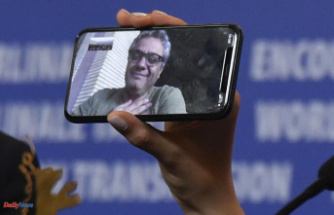The Ukrainian Foreign Minister, Dmitro Kuleba, asked today in Prague not to extend the temporary ban on imports of Ukrainian grain in Hungary, Poland, Bulgaria, Romania and Slovakia, which expires next month.
"We are clearly against it," Kuleba told a news conference after meeting his Czech counterpart, Jan Lipavský.
The head of Ukrainian diplomacy was referring to the aspiration of the five aforementioned countries to extend until the end of the year the ban on importing Ukrainian cereals free of tariffs.
Those Ukrainian agricultural products were staying in the markets of those five countries at prices considerably cheaper than what local producers can offer, instead of reaching other EU member states or non-EU third parties.
This veto, granted by the European Union (EU) last spring, means that Ukrainian cereals can transit through Bulgaria, Hungary, Poland, Romania and Slovakia (but not be sold there) to be marketed in other Member States or to a country or non-EU territory.
Kuleba considers that the ban violates the EU-Ukraine association treaty, and, above all, it goes against the principle of solidarity that is the cornerstone of the EU."
He warned that it complicates the departure of grain from his country, already in serious difficulties since Russia last month abandoned the agreement agreed a year earlier to facilitate food exports from Ukrainian Black Sea ports to international markets.
Already last May, after the ban on the marketing of Ukrainian maize, wheat, rapeseed, sunflower oil and sunflower seeds in the five eastern Member States came into force, the primary sector in Ukraine began to encounter great difficulties in getting the grain of the country.
"We ask countries not to make the wheat export issue a hostage to their domestic political process," Kuleba said.
Although the diplomat thanked the military and humanitarian aid offered to Kiev by those same community partners, he insisted that his country will fight to "defend" their rights, although without specifying how.
"In the event that the restrictions continue, they will leave us no choice but to defend our rights and the rights of our farmers, and we wholeheartedly want to avoid that," Kuleba added.












